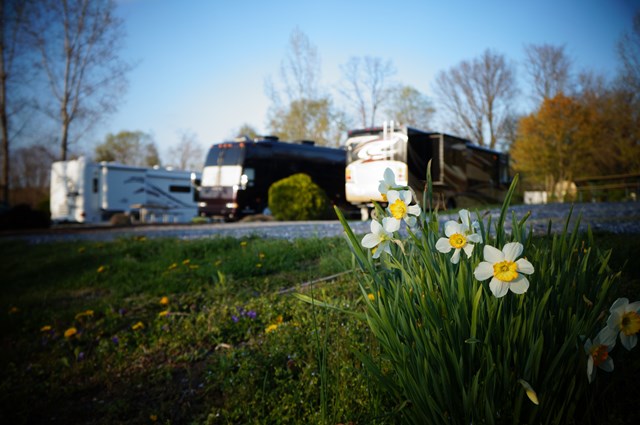Priced Out of Traditional Housing, More Americans Are Living in RVs

This is an excerpt from an article by Shannon Pettypiece that ran on NBCNews.com.
Days before his 12th birthday, Dante Reynolds zipped past rows of tightly packed RVs on his kick scooter until he arrived at the 22-foot travel trailer his family calls home. It was parked that week in a southern Oregon campground off a highway.
Inside, his mom was quickly washing a pile of dishes before the water in their RV’s tank ran out. He leaned his scooter next to his sister’s “Frozen”-themed tricycle and came inside to help make lunch. The RV doesn’t have any tables or chairs, so he sat on a makeshift bed covered by a SpongeBob blanket with a cutting board on his lap, chopping peaches, apples and kiwis while his mom cooked hamburger patties on the RV’s small gas range.
“This lifestyle doesn’t accommodate things like sitting at a table,” said his mom, Andrea Stitt.
Childhood looks a lot different for Dante than it did four months ago, before his mom lost the day care business she was running and the family was evicted from their four-bedroom home about three hours away. Now, living out of a roughly 175-square-foot RV with his mom and 6-year-old sister, Dante’s space is limited to a twin bed wedged under a loft, cordoned off with privacy curtains. Without regular Wi-Fi, he rarely plays video games anymore. Most of his belongings are confined to a couple of small bins, and his friends are hours away.
When the family is unable to afford a spot at a campground, which can cost $25 to $45 a night, they park on remote federal lands, which are free for two weeks. But those sites don’t come with water or electricity and have spotty cell service. At times, the family has bathed and washed their clothes in a river and gone to the bathroom in the woods to conserve the water in their RV’s tank.
“I’ve adapted to this lifestyle because we have to adapt,” said Dante, who now spends most of his free time outdoors exploring and started an online school program this fall. “If we don’t adapt, we won’t change, and if we don’t change, we’ll be mad, and if we’re mad, that just sucks. You don’t want to be mad.”
To read the rest of this article, click here.

